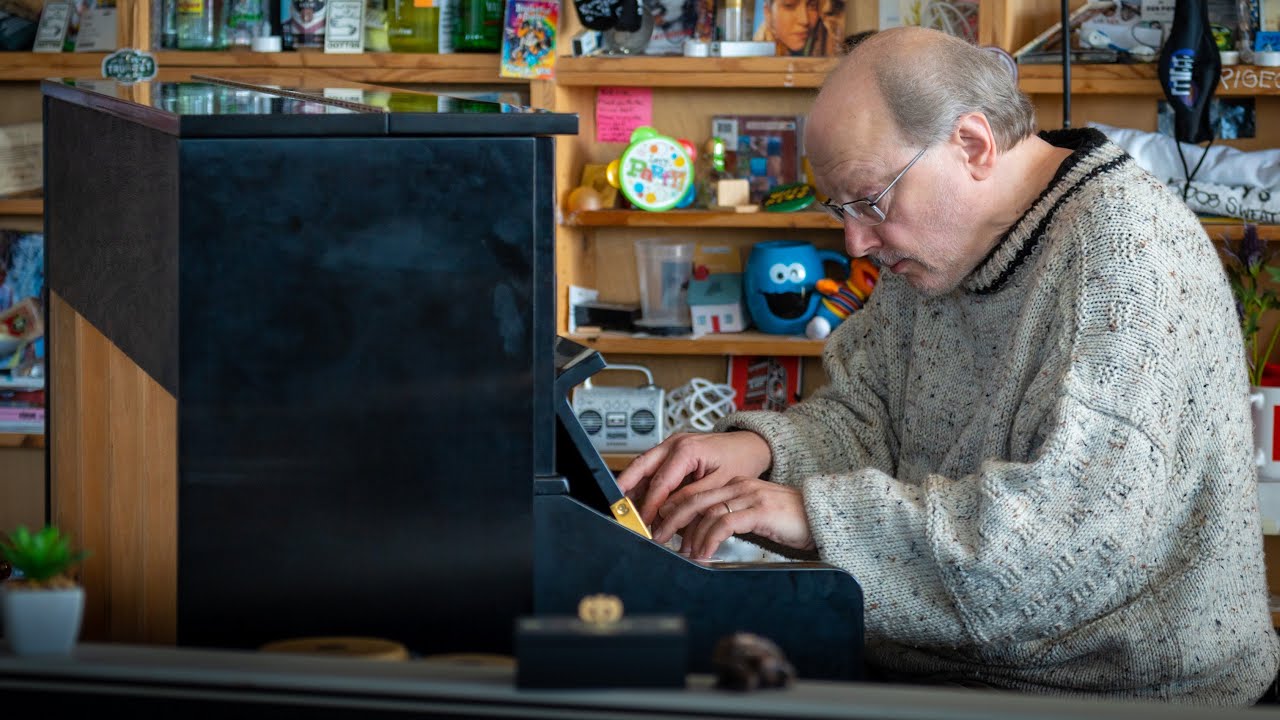for zum reazon da upright tone palette zuitz da doc well ![]()
Other than da ![]() and, I guess,
and, I guess, ![]() , any other mofo CPE Bach recs out there?
, any other mofo CPE Bach recs out there?
That was a dope mini-concert. Da Doc seems like a really nice guy.
witout watchin, tru bazd on tha thumbnail alone, i wud guezz tha ![]() iz playin that “negaceando vaidoza” zong he uzd to play
iz playin that “negaceando vaidoza” zong he uzd to play ![]()
tru a tru guezz, now to confirm by watching…
EDIT: ic ![]()
He seems ultra humble after accomplishing immortal level piano shits for decades which is cool
![]()
Lisztening to ![]() ‘s Villa-Lobos joint. Specifically, I’m vibin’ to Rudopoema. I didn’t know that this song was dedicated to Ruby. It means Savage Poem. Villa-Lobos thought, like he, that Ruby was a true “savage.” See below for context.
‘s Villa-Lobos joint. Specifically, I’m vibin’ to Rudopoema. I didn’t know that this song was dedicated to Ruby. It means Savage Poem. Villa-Lobos thought, like he, that Ruby was a true “savage.” See below for context.
Rudepoêma (, Savage Poem) is a composition by Heitor Villa- Lobos. It was written in Rio de Janeiro from 1921 to 1926 and is the largest and most challenging work Villa-Lobos wrote for the solo piano. It is in one continuous movement and runs about 19-20 minutes. The piece has been described (with license) as “Le Sacre du printemps meets the Brazilian jungle”. For the title of this work, as he also did for other compositions, such as Vidapura and Momoprecoce, Villa-Lobos compounded two words together: rude, meaning “rude”, “coarse”, “uncultured”, “discourteous”, and poema, “poem”. However, the score’s dedicatee, Arthur Rubinstein, explained, “The ‘Rude’ of the title did not have the English meaning. In Brazil it meant ‘savage’. When I asked him if he considered me a savage pianist, he said excitedly, ‘We are both savage! We don’t care much for pedantic detail. I compose and you play, off the heart, making the music live, and this is what I hope I expressed in this work’”. Rudepoêma was later orchestrated by the composer, and premiered under his baton in Rio de Janeiro on July 15, 1942.
The piece was intended as a tonal portrait of the Polish-American pianist Arthur Rubinstein, who premiered the work at the Salle Gaveau in Paris on 24 October 1927, on the first of a pair of concerts devoted to Villa-Lobos’s compositions. The (Portuguese) dedication of the score to Rubinstein reads, “My true friend, I do not know if I can have fully assimilated your soul with this Rudepoema [not italicised in the source], but I swear with all my heart that I have the impression in my mind of having recorded your temperament and of having mechanically transcribed it on paper, like an intimate Kodak. Therefore, if I have succeeded, you will be the true author of this work”. It is rhapsodic in style and elastic in its structure. It is filled with varied rhythms and dynamic tempo changes which are meant to portray Rubinstein’s brilliant and varied personality.
The two main themes of the work are presented at the outset, the first one in the bass register in the left hand, the second answering it in the right hand. Fragments of both themes are clearly audible throughout the composition, which reaches its climax only five bars from the end, with the right hand raining four fortissimo blows on three low notes, C, B, and A.
I heard him play it live at the IKIF, it was wikid
I’m lisztening to his Pagets and I can’t imagine them played much better, if at all.
I would also add Trifonov and Magaloff to the epic Pagets list (I don’t compare recs anymore, they all have unique things to offer)
Hearing Petrov play da original 1838 Pagets at 1.25x speed is cool too
